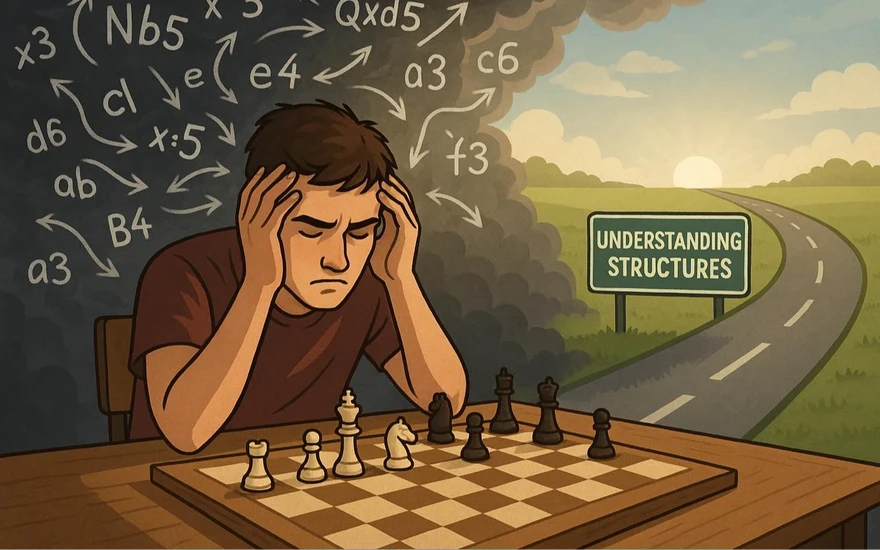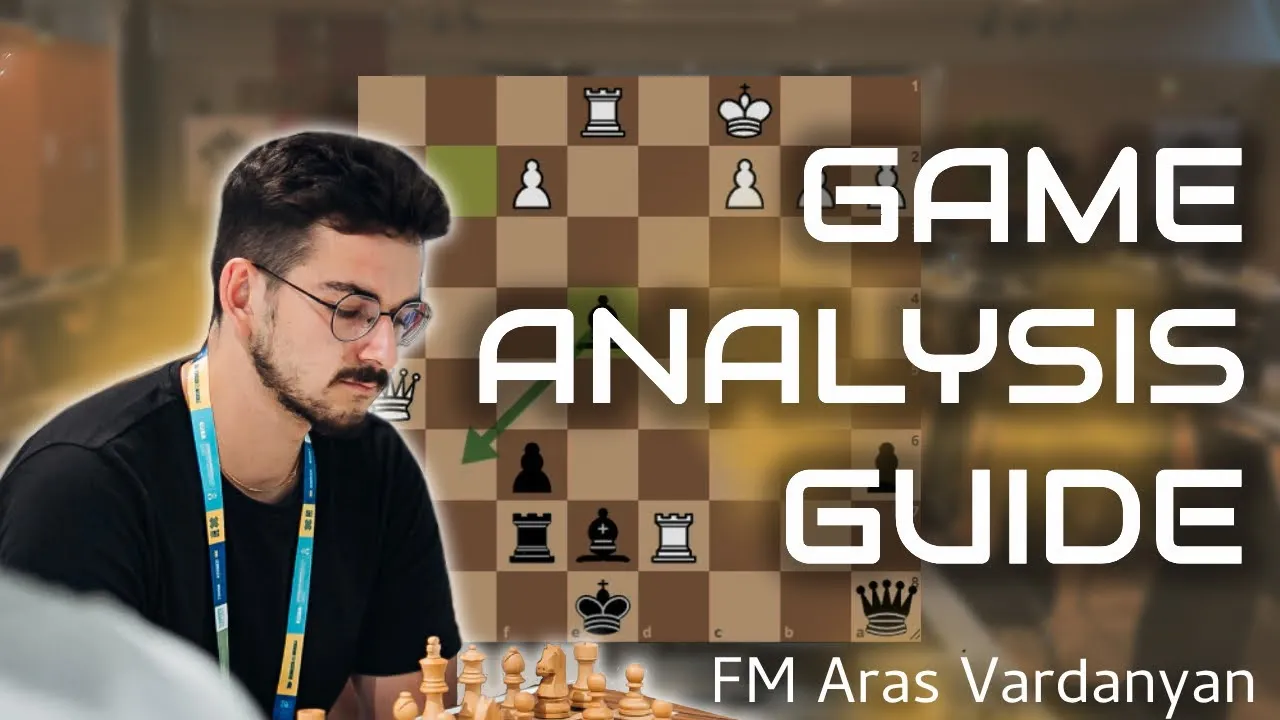· FM Aras Vardanyan · 6 min read
Opening study for advanced players. A Coach’s Honest Take
There's nothing wrong with working on the openings. However, 'working' does not necessarily mean 'memorizing'. In this blogpost we will aspects of opening play that yield longer term results.

Openings are probably the most discussed topic in the chess community, especially at the club level.
This makes sense since they are relatively easy to talk about, everyone has their favorites and often times people base their chess personalities entirely on the openings they play.
Sites like Chessable have made learning openings extremely easy (or at least such an impression is made), leaving community members with the age-old questions - “what should I play against e4?”, “Against d4?” “Is the french a good opening?”, “Is the italian better than the scotch?”, etc. Here I will share my experience working with club players, as well as how my views on openings have changed since the time I was a club player myself.
Why Chess Openings Are So Popular to Study
Why do chess players spend endless hours studying openings, when most games are decided by mistakes in positions nobody prepared for?
The opening is the first stage of any chess game, the goal of which is rather simple - develop the pieces, control the center, in general just get your forces ready to fight. Doesn’t sound that impactful right? But there’s very clear reasons on why openings are talk about so much:
- Sheer amount of theory available. Openings continue to deepen, and modern engines discover new lines and ideas every day.
- Ease of study. Of course, endgames and middlegames also have a vast amount of content to explore, but the difference is that openings are a lot easier to analyse - they start right at the starting position, you can always choose to study whatever line you want, the widely available opening database makes it easy to see which moves are often played and which ones are less popular.
- Immediate results. When you go to learn some specific variation, then later load up an online game on lichess, the chance of playing a line or move that you recently learned is quite high. Of course, such chances increase if you play more games and study more lines. This gives us confidence and belief that we are learning something - how can it not be the case? I learned the move and I played it right here, look! In reality, what we are doing here is reciting instructions of how to build an IKEA shelf, but what happens when we have to build something similar, but from a different company?
The Problem With Memorizing Lines Without Understanding
In my honest opinion work on openings is done ineffectively most of the time, I would mainly blame the elements of instant gratification, ease of access to material and the general difficulty of the rest of chess.
Now, to be clear — memorising opening lines isn’t bad in itself. In fact, it’s a necessary part of serious chess improvement. The problem is when it isn’t backed up by an understanding of the typical structures those openings lead to. Without that, you might know what to play up to move 15, but have no idea what your pieces should be doing afterwards.
Memorisation should serve as a framework, not a crutch.
What can be better than memorising ways to get good positions in every game? The problem is that chess is too complex and there is usually no such thing as “the move” in every position. Especially in openings, where the possibilities are endless. This means that on every turn your opponent can willingly or unwillingly play “suboptimally” and give you an advantage of 0.3 or 0.5 or something similar, which at the club level isn’t very significant and at no level is it a winning advantage. So, even if you get everything that you know on the board, it still will not give you anything substantial.
What Openings Should Teach You Instead
What helped me the most was learning pawn structures.
This may seem like a middlegame topic, but in fact every opening has structures that most often arise from them. Some examples include, but are not limited to:
- Advanced French structure
- Modern Benoni structure
- The King’s Indian exchange structure
All of the most common structures have been widely studied and all of the typical ideas, manoeuvres, tactical motives and traps are known by the experts of the openings. Most of the time, we can learn from their games and annotations about these typical ideas and then try to apply them in our own games, slowly learning which ideas are most appropriate in most kind of situations. Such a process is slow but it’s what gives the biggest results and which ends in what we call “understanding” of the opening.
Pawn structures and typical manoeuvres
Examples From My Own Games
I’ll share a few games showing what happens when a player isn’t familiar with the ideas behind the opening and its typical structure. Using my past-self as a prime example.
Now, here comes a few examples of overmemorization that I have experienced myself.
Finally, I would like to show some games which illustrate the importance of knowing the typical ideas and patterns of specific pawn structures and how they help to win games in the long run
Final thoughts
To conclude:
- Knowing some opening moves is helpful for confidence and comfort, but it’s not what wins games.
- Real understanding of openings and their resulting structures takes hard work and time.
- Memorization should help you reach familiar structures, not replace critical thinking during play.
- A strong opening repertoire should include:
- A database of lines you know
- A set of model games showing typical ideas in those lines
Learning new variations and ideas in our familiar structures should be a part of everyone’s training plan, no matter the level.
Our approach at Chessodoro
The core of what we do here at Chessodoro is focused on fully personalized improvement plans created by me or other coaches.
Most of those plans also include some for of opening study with clear instructions of how to approach it for player’s level. In addition to improvement plans, our members have regular video game reviews (check out our youtube channel), play me or other coaches regularly, and more.
If you ever wondered whether a chess coach could help you improve, but want to skip the hassel of Zoom calls - Chessodoro might be the perfect solution.
